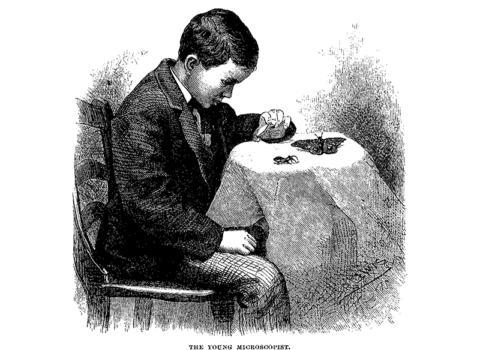The President’s War
"For the first three years of François Hollande's presidency, he was neither malicious nor dangerous. And yet, since the terrorist attack on the Bataclan, it’s been a whole different story."
It’s true that I have very little in common with the French-born Kouachi brothers and the Bataclan murderers. Or with the still-unknown, dual-passport-holding jihadists who are intent on committing crimes against their French fellow citizens in the near future.
Nevertheless, as a citizen of both France and the United States, I’m offended by President François Hollande’s so-called Protection of the Nation bill, which, if adopted, would grant the French government the authority to strip binationals of their citizenship (although the text, in its latest form, fosters the illusion that binationals are not the targets of the measure). No, I have no sympathy for convicted terrorists, but somehow I feel I may have even less for the hypocrites in my own cosmopolitan, highbrow, left-wing milieu, among them Hollande. In a televised interview on August 31, 2010, when he was a mere member of the French National Assembly, he forcefully stated his position: “Would that [deprivation of citizenship] do anything at all to improve the protection and security of our fellow citizens?… No. Does it conform to our history, our traditions, our constitution? As we know, ever since 1849, French citizenship is acquired at birth, or, in the case of a foreign national married to a French citizen, after he or she lives here for a couple of years and passes a test. Why would we call those essential principles into question?” Hear, hear!
According to La Rochefoucauld, “Hypocrisy is a tribute that vice pays to virtue.” However, until November 13, it never seemed to me that the President of the Republic was a person with evil inclinations. Too bellicose in Africa? Maybe. Normally corrupt in his relationships with Saudi Arabia and Qatar, headstrong on the subject of liberal Europe, and subservient to Merkel? Sure. But, for the first three years of his presidency, he was neither malicious nor dangerous. And yet, since the terrorist attack on the Bataclan, it’s been a whole different story. Flanby (Hollande’s nickname, from the name of a caramel custard dessert) is now playing a darker role: He’s a strong wartime leader, despite the absence of a uniform; he’s a man trying to rally his people to the standard of blind unity. The state of emergency extended for three months, public demonstrations banned, warrantless searches allowed—things are starting to look serious.
Even worse is his project for the reformation of the penal system, characterized by Le Monde as an attempt “to prolong the measures authorized by the state of emergency beyond the state of emergency.” The law he’s proposing would also allow police to run identity checks on French citizens and to search through their baggage and vehicles without first obtaining a warrant. To diminish the independence of examining magistrates seems to me a genuine attack on the spirit of French liberté. In the same newspaper, on the other hand, Sylvie Kauffmann laughs at facile comparisons to post-9/11 America, the America of Bush/Cheney and the Patriot Act: “We in France are far from the American model … here you can easily detect an electoral calculation … but not the messianic spirit of the neoconservatives.”
Sorry, but this statement reveals a level of naïveté unworthy of so excellent a journalist. George W. Bush also made an “electoral calculation.” He played the part of the strong, pitiless general who yields neither to terrorists nor to acts of terrorism. In 2004, even though the Iraq invasion had already subsided into catastrophe, the American people didn’t dare remove Bush from his post; on the contrary, they gave him a popular majority of 3 million votes. His was not a foolish calculation, and apparently Hollande is betting on the same logic and the same numbers.
However, a simple tactical maneuver can quickly become a grandiose idea. In Bush’s case, it’s obvious that his fierce battle against terrorism became a source of personal delight. Like Hollande in former days, Bush—before the attacks on the twin towers—was considered rather an easygoing sort, a nice and not at all aggressive guy. At the time of the September 11 attacks, he was reading “The Pet Goat” to some young schoolchildren. But under the urging of Dick Cheney and other violent men, Bush got so carried away by his newfound self-righteousness that he began to believe in an image of himself as the defender of civilization. That made barbarous acts—at Guantánamo, in Abu Ghraib prison, and at the CIA’s black sites—permissible. Does anyone really think that Hollande, encouraged by Manuel Valls (“Security is the first freedom,” Valls said at the National Assembly), couldn’t be seduced by the same temptations? The total number of warrantless searches carried out since November 14 is given as 3,242. What’s coming next? Little fellows can suddenly start believing they’re very big.
“War is the health of the State,” wrote Randolph Bourne, a brilliant, left-wing American essayist. And here’s war once again, coming to the rescue of a politician in bad health.



